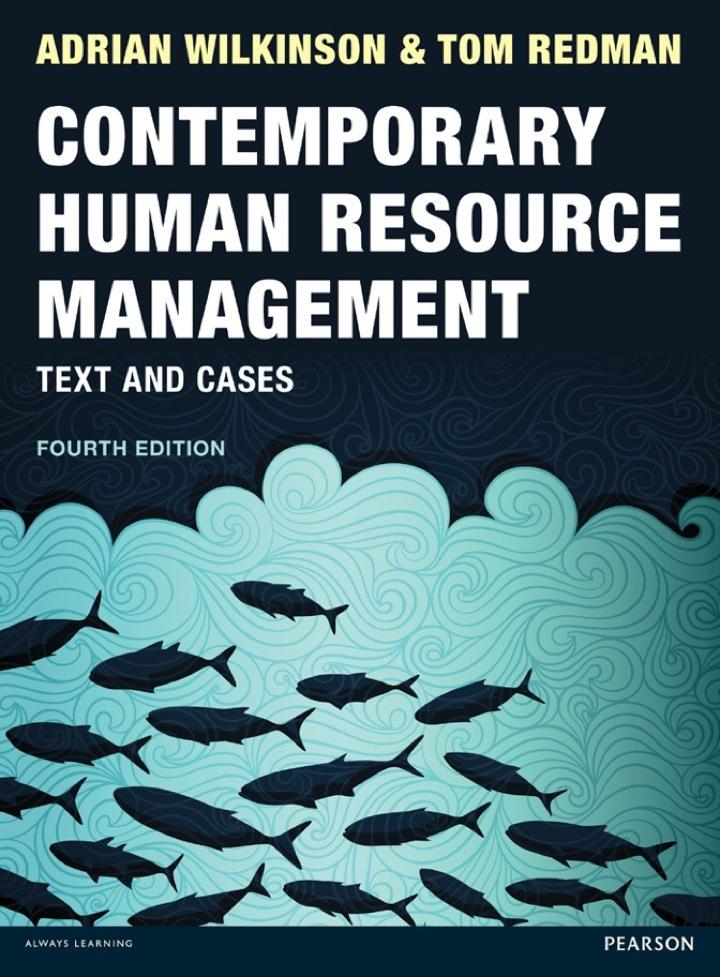David Nolan is the Chief Executive of Educate, a US based multinational publishing company. The company has
Question:
David Nolan is the Chief Executive of Educate, a US based multinational publishing company. The company has offices worldwide, with large offices in the UK, Canada, Belgium, Australia, Singapore and the US. Currently the company is investigating the creation of two new offices in areas where there have recently been expanding markets: China and eastern Europe. David is proud that the company is seen at the forefront of contemporary educational publishing, a thriving market. Sales are good and the expansion plans have considerable support from the Board and shareholders. He is particularly proud that the company has just recently been rated as one of the USA’s top 50 employers by the Diversity Digest.
This is a survey read widely around the industry and the high rating at number 8 enables the company to attract the best employees from the range of diverse groups that make up the US workforce. Other accolades for the diversity friendly company have come from the US Union of gay workers, and the National Association of Women, both of which have rated Educate very highly in their annual awards as good places to work.
David Nolan knows, however, that a firm should not rest on its laurels. Recently, an issue has arisen at one of the subsidiary companies that may potentially threaten the good name of Educate. One of the senior managers at the UK subsidiary has recently emailed him to say that the women staff are unhappy with some aspects of their career progression, and that there is the potential for unrest within the firm about diversity issues. David realizes that some of the good diversity policies that are currently practiced in the US need to be also operating in the global wings of the business. His view is that it is time for him and the senior international team to intervene in the UK to try and ensure that statutory diversity requirements are being met.
The UK part of the business was initially established in 1902 as Athertons Educational Publishers a specialist publisher of educational textbooks. Starting off in a small printing press in a London back street, by the 1920s the firm employed 20 people in the selling and production of high-quality educational texts. After the 1944 Education Act the demand for educational texts increased and Atherton became one of the leaders in the market, with a name for commissioning and publishing language texts.
Initially focusing on English, the senior management team after the Second World War realized that there would be an increased demand for tuition in European languages. Their proactivity in addressing this new market led to the firm successfully developing a reputation as the leading publisher of foreign language texts. During the 1960s the senior management team predicted a growth in multicultural texts aimed at schools. In advancing in this direction Atherton took a large share of what was to be an increasingly important market. At the same time Atherton was taken over by Educate, by then a large multinational publishing corporation.
The economics of the international publishing environment have changed significantly during the last 20 years. A move has clearly occurred towards a more business-oriented and market-focused culture with a reorientation in values away from an editorial focus towards marketing and sales. As one of the UK employees said:
Publishing is about making sound commercial decisions about what people need and want. It used to be a gentleman’s profession, but now we have had to tighten up our act – we need to publish things cheaply and quickly.
Currently, Dan Walker is the Managing Director of the UK Educate wing. He is a powerful, charismatic figure who is said to inspire his colleagues and staff.
Currently, 4,500 employees are employed in the UK. Although 53 per cent of the UK managers in the company are women, only one woman is a member of the senior management team. Recently, there has been considerable dissatisfaction among the female staff who perceive that there is a glass ceiling at senior management level. There is a clear consensus among them that sexual discrimination at work is covert rather than overt. As one of them suggested:
I’ve not directly experienced any prejudice, but I’ve seen evidence of it around. It’s not easy to move higher in the organization. If you’re exceptional then you rise, but then women have to be a bit better than men in order to do that. It’s still grey suits at the top........
Question
1 What advice would you give to David Nolan about developing a global diversity strategy to cover Educate worldwide? What are some of the difficulties he may face in his attempts to implement a global diversity strategy?
2 What advice would you give to Dan Walker about how he can deal with the diversity issues currently faced in the UK part of Educate? What type of diversity interventions can be introduced locally that will both satisfy the staff that progress is being made and also satisfy David Nolan that the UK are coming into line with US diversity practices?
Step by Step Answer:

Contemporary Human Resource Management Text And Cases
ISBN: 9780273757825
4th Edition
Authors: Tom Redman, Adrian Wilkinson





